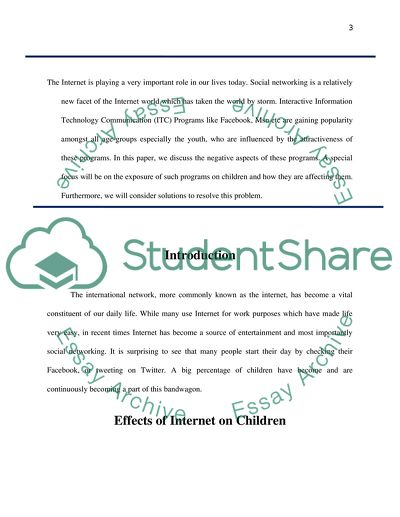Cite this document
(“Negative Ramifications on Children Exposed to ITC Programs Research Paper”, n.d.)
Negative Ramifications on Children Exposed to ITC Programs Research Paper. Retrieved from https://studentshare.org/social-science/1743245-the-negative-ramifications-of-children-exposed-to-interactive-information-technology-communication-programs-such-as-facebook-msn-messager
Negative Ramifications on Children Exposed to ITC Programs Research Paper. Retrieved from https://studentshare.org/social-science/1743245-the-negative-ramifications-of-children-exposed-to-interactive-information-technology-communication-programs-such-as-facebook-msn-messager
(Negative Ramifications on Children Exposed to ITC Programs Research Paper)
Negative Ramifications on Children Exposed to ITC Programs Research Paper. https://studentshare.org/social-science/1743245-the-negative-ramifications-of-children-exposed-to-interactive-information-technology-communication-programs-such-as-facebook-msn-messager.
Negative Ramifications on Children Exposed to ITC Programs Research Paper. https://studentshare.org/social-science/1743245-the-negative-ramifications-of-children-exposed-to-interactive-information-technology-communication-programs-such-as-facebook-msn-messager.
“Negative Ramifications on Children Exposed to ITC Programs Research Paper”, n.d. https://studentshare.org/social-science/1743245-the-negative-ramifications-of-children-exposed-to-interactive-information-technology-communication-programs-such-as-facebook-msn-messager.


